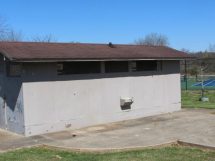
DALLAS, Texas (Nov. 22, 2013) – The American Heart Association has presented its research achievement award for 2013 to Roberto Bolli, M.D., of the University of Louisville, “for the profound and lasting impact of his extraordinary contributions to cardiovascular research.
“Over the past 40 years, Bolli has gained deserved recognition as a world leader in his field,” said American Heart Association President Mariell Jessup, M.D., who presented the award. “He has advanced our understanding of the mechanisms responsible for injury to the heart during ischemia and reperfusion, opening the way for developing novel protective strategies in patients with ischemic heart disease.”
Bolli is professor of medicine, physics and biophysics; chief of the division of cardiovascular medicine; and director of the Institute of Molecular Cardiology at the University of Louisville. He received the award, a citation and $2,500 honorarium during the opening of the American Heart Association’s Scientific Sessions 2013 at the Dallas Convention Center. The event is the leading cardiovascular meeting for basic, translational, clinical and population science in the United States. More than 18,000 cardiovascular experts from 105 countries attended the meeting.
Bolli has emerged as a leader in regenerative cardiology, the pioneering use of patient-derived cardiac stem cells to repair heart muscle damaged during a heart attack. He is currently directing the first major study to test the potential healing effect of patients’ own stem cells.
“Seamlessly melding basic experiments with patient-oriented studies has been a hallmark of Dr. Bolli’s research,” Jessup noted. “He has made great strides in solving the mysteries of ischemic heart disease and developing effective new approaches in the attack on this worldwide problem afflicting millions.”



















Add Comment